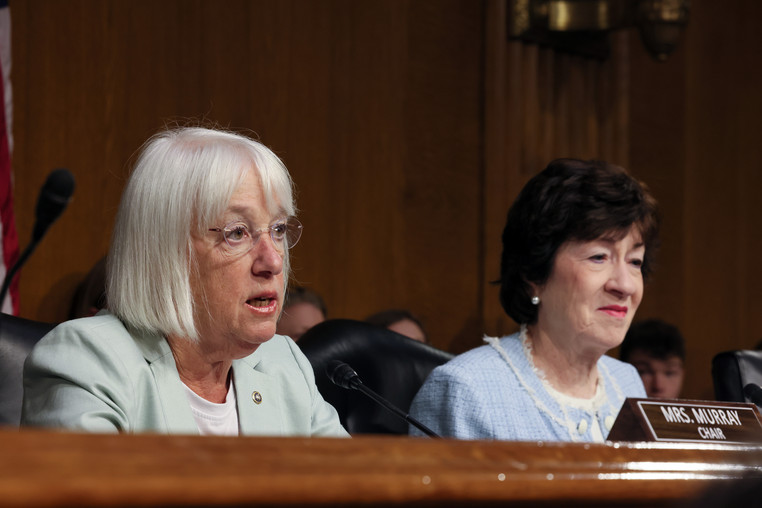***WATCH: Senator Murray’s questioning of Administrator Power***
Washington, D.C. — Today—at a Senate Appropriations State, Foreign Operations, and Related Programs subcommittee hearing on the fiscal year 2025 budget request for the U.S. Agency for International Development (USAID)—U.S. Senator Patty Murray (D-WA), Chair of the Senate Appropriations Committee, discussed our investments in USAID and the urgent need to help ensure more aid gets into Gaza to meet the dire needs on the ground.
In opening comments, Senator Murray spoke about how our investments in international development and humanitarian assistance aren’t merely the right thing to do but a smart investment for our country, stating:
Senator Murray also reiterated her concern that not nearly enough aid is making it into Gaza: “I share the concerns of my colleagues that you heard about we are not doing enough to get more aid into Gaza. Air drops and sea routes are not going to solve this. So we have got to see consistent access across the entire Gaza Strip—including the north—at a scale necessary to address the serious threat of famine.”
“Chair Coons, several colleagues, and I just returned from a CODEL that I led to southern Africa, where we met with officials and leaders in a handful of countries, and saw firsthand how U.S. investments are strengthening our political, economic, and security partnerships.
“And I’m very eager to talk about how we build on that progress—especially when it comes to economic and development assistance.
“At this critical moment with a severe humanitarian crisis in Gaza, civilians in Ukraine suffering from Putin’s brutal invasion, and so many other challenges—like the truly dire crisis in Sudan, where a staggering eight million people have been displaced—it is clear that we cannot abandon our role as a global leader in delivering humanitarian aid.
“Across all these programs, we also need to continue to do better incorporating women and girls—who are often most at risk in times of conflict—into emergency response, development programming, and peacebuilding work.
“And we need to keep building our global health infrastructure.
“Let’s be clear: helping our partners around the world overcome hardships, increase their security and stability, and improve their economies and the lives of their people is not just the right thing to do—it is the smart thing to do. These are investments that pay off for our country.
“We are helping our partners address threats across the world—like conflict, chaos, and contagion—before they fester and jeopardize folks here at home.
“So with that in mind, I’d like to turn to my first question.”
Senator Murray asked USAID Administrator Samantha Power about investing in improving the lives of women and girls, stating: “On my recent trip to southern Africa, I was glad to see the progress we’ve made in improving the lives of women and girls. But we need to continue to do more to be responsive to their needs in every aspect of foreign assistance. …. How can we continue to ensure the needs of women and girls are accounted for in humanitarian response and development programming?”
Administrator Power replied, in part: “Well I think, for start, to sustain the resources invested in programs that are dedicated to girls’ education, support for female SMEs, and so forth—all of these—we have sprinkled throughout the world including the countries you visited. And thank you—our teams were so grateful that you all took the time to not only visit those countries but to see the programs up close. One example which I think needs to be a growth area—even in the budget-constrained environment—is on global health workers. As the vast majority of global health workers are women, as you know, they are underpaid, and in some cases, they are unpaid. And so even though this recent budget cycle as you mentioned is going to be very difficult for us with the FY24 budget—we are grateful to you for finding $10 million dollars for the Global Health Worker Initiative, and we would like to grow that over time. …. But in addition to these dedicated programs, I think women’s and girls’ empowerment needs to be a design feature—really a filter through which we look at all of our programming—agriculture, economic growth, global health, as I mentioned, education—and I think the teams have made a ton of progress in the last three years in doing that.”
Senator Murray also asked about the challenges of drought and climate change—and asked Administrator Power about how USAID is investing in water rights and sustainable resource management to reduce the risk of conflict.
###


